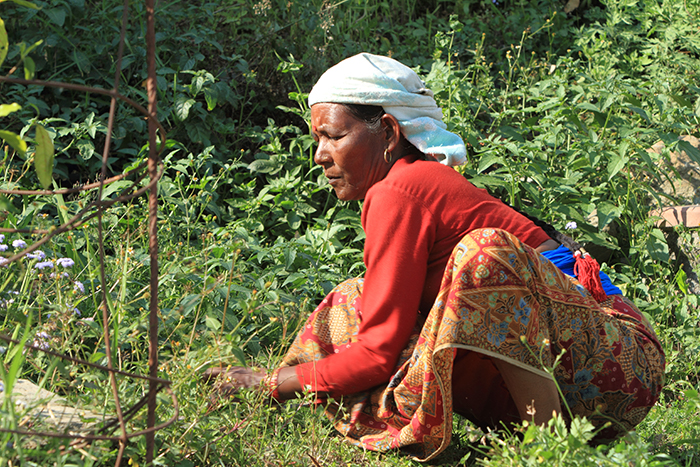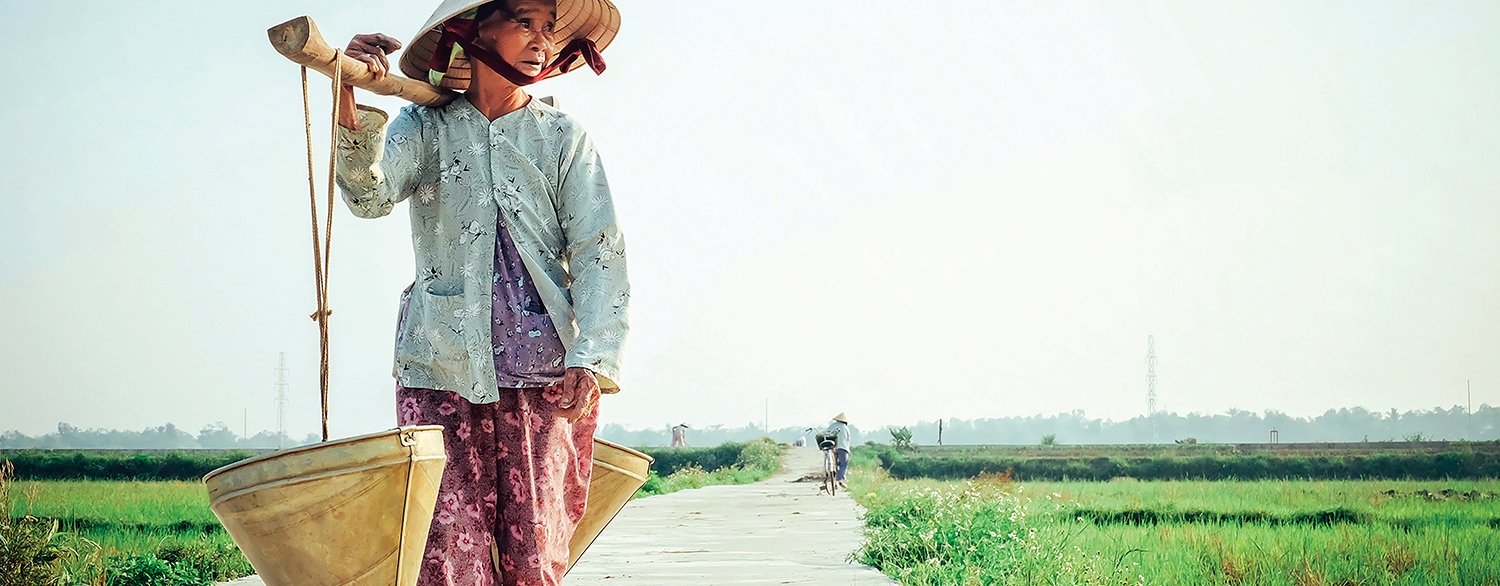
We empower women with programs that are co-developed with local and international NGOs.
This is particularly the case:
“Horta na laje” (Gardens on the roofs) is a Stop Hunger program, launched in 2017 in Paraisópolis, one of the largest and poorest favelas in São Paulo. Among the 100,000 inhabitants, nearly 30% of mothers of families leave their jobs when children arrive. Less income means more poverty and hunger, adding to the risks of marginalization and major insecurity.
Co-created with the Paraisópolis Women’s Association, the program Horta na laje aims to achieve the opposite balance: to give training and tools to the mothers of families to cultivate small organic gardens together to provide their families with healthy food, while earning an income by cooking a part of the harvest in their public educational restaurant, and by selling the rest.
Other NGOs and social entrepreneurs now want to contribute to the development of this model to boost its impact.
As part of a World Food Programme (WFP) assistance program for the government of India, Sodexo experts currently train over 6,900 educators, including 50% of cook’s helpers, on good restaurant practices to ensure food safety. In the disadvantaged area of Dhenkanal in the country’s northeast, this training not only helps to prepare healthy meals for nearly 130,000 children in more than 1,600 schools, but it also helps develop women’s skills, providing a means of finding a job elsewhere.
Les Tremplins du Coeur is Restos du Coeur’s training initiative in France, partner with Stop Hunger for 16 years. With Sodexo, Stop Hunger has created an six-month qualifying training which allows women, beneficiaries of Restos, to gain experience in restauration and then receive a diploma. 21 women have graduated of which 6 are currently hired by our founding partner Sodexo.
Cocinas Bondadosas Program is a training-based initiative to empower mothers and women in general to be more efficient with the use of their food resources and, most important, being able to replicate this model in other communities. The program also focuses on changing food consumption habits within the communities for better nutrition & educating mothers to be more efficient with their resources in the household and thereby, being able to give more to their families with the same budget.
Thanks to the YEAH! Mission in Tunisia, Sodexo experts gave recommendations on organizing local purchases, including the Community Organizations of Rural Women. In southern Guinea, with WFP, we support the steamed rice trade produced locally by 500 women in two cooperatives, and train thousands of others in this quality production. This rice now mainly supplies schools in the region. These two examples clearly show that supporting the production of rural women can provide free, nutritious meals for millions of children and have a positive impact on their lives and futures, as well as more widely in local communities and countries.
The NGO World Vision identifies, convinces, mobilizes, trains and accompanies some of the poorest women to create and develop two local agricultural cooperatives, which leads to sustainable sources of work and income, and economic activity for communities… This is the concentrated action with the cities Predesti and Mihaesti, located less than 200 km from Bucarest. The two cooperatives were finished at the end of 2018, along with 6 greenhouses and a cannery. Production is currently concentrated in Predesti, where 8 women grow tomatoes, spinach, salads, and peppers to then make traditional fair-trade preserves, marketed locally online and in markets, under the brand name Dar de Gospodar (The good product of the farm).
Last news: 04/22/20 - Stop Hunger makes women its priority and empowers them to act locally and sustainably
